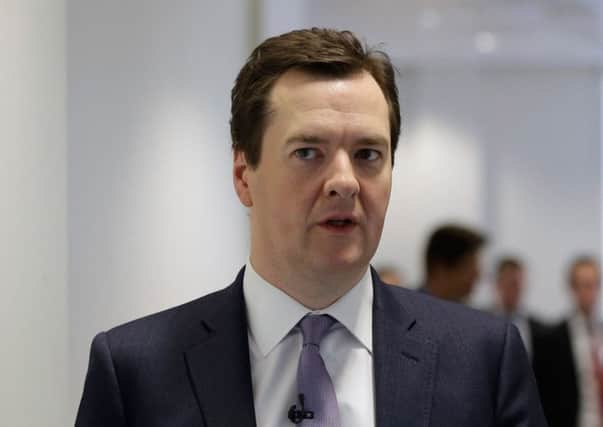Comment: Osborne’s focus is on personal tax allowances


Which suggests income tax will be the big theme.
Last month in Hong Kong, Osborne admitted the UK economy was too reliant on consumer spending and needed more business investment. That foreshadows a raft of technical reforms in the Budget small print. The CBI wants the Chancellor to encourage retail equity investors by offering extra relief on capital gains.
But income tax decisions win elections. Despite the rumours Osborne might re-brand National Insurance as “earnings tax” – paving the way for a long-term reform of the system – his 2014 Budget simply has to deliver politically.
Advertisement
Hide AdAdvertisement
Hide AdAs is his wont, the Chancellor has been telling anyone who will listen exactly what he intends to do about income tax. At a recent meeting of the Tory back-bench 1922 Committee, Osborne was asked if intended raising the threshold for paying the 40p rate, to help the middle class. Instead, he indicated that his priority was to increase the tax-free personal allowance. In 2010, the allowance was just under £6,500. Next month it will rise to £10,000.
This is not what Tory backbenchers wanted to hear, especially as the Lib Dems are claiming the policy as theirs and even demanding a £10,500 personal allowance. Helping the low paid is one thing but it is shifting the tax burden squarely on to middle-income earners. In 2010, Labour’s final year, 3.2 million taxpayers were in the 40p bracket. This has jumped to 4.7 million – 16 per cent of all taxpayers. With the economy growing like the clappers, another million could soon be caught in the 40p net.
There is method in Osborne’s strategy. Upping the personal allowance is instantly visible and highly popular. Besides, low inflation and rising wages throughout the rest of 2014 will boost living standards, making the 40p threshold less irksome. So expect more of the same
Divis on the rise but we need to widen the net
STV is not the only company reviving dividend payments. UK investors are in line to receive a bumper £101 billion in dividends in 2014 – a jump of a quarter compared with last year. Of course, the picture is distorted by Voda- fone’s windfall sale of its American business but even if this is taken into account, dividends should still beat the previous record in 2012 of £81bn.
The downside is that companies have more cash than they know what to do with – a bad sign for capital investment. On the other hand, we can expect a rash of IPOs. After Boohoo, the online fashion retailer, comes Poundland and Pets at Home. However, Britain won’t build an economy on just retailing. Where are our high tech IPOs?
Question over Shell’s referendum stance
FOR the record, Shell will not pull out of the North Sea if Scots vote for independence. Shell has a legal commitment to dismantle its production infrastructure, which will take decades and cost billions. This year and next it is scheduled to decommission four platforms in the Brent field. Could it be that Shell thinks it will get an easier regulatory ride from a Conservative prime minister in London than a certain First Minister in Scotland? Only asking.